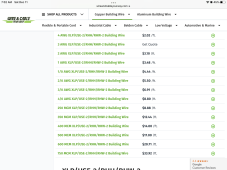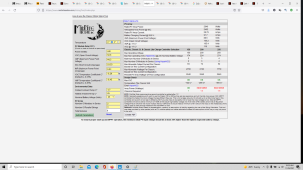Jamie.sanders
New Member
- Joined
- Dec 1, 2019
- Messages
- 159
I am currently putting together my system and learning as I go, I'm curious of the advantages of a 48V system over a 24V.
I read somewhere you can use smaller wire, but which wire is this referencing? I did not see that info needed on a wire sizing calculator
for my wire from panels to Charge controller? can you run smaller wire there with 48V, that would save $$$
I currently have 12, 440 watt panels (5,280 watts total)
I have 2 Midnight 150 charge controllers
I currently have 24 lithium cells, to make 3, 24V batteries, each consisting of 8 cells.
I am considering buying another 8 cells, to make a total of 2, 48V batteries. and I need to decide this before I order my inverter.
suggestions? input, is it worth it?
I read somewhere you can use smaller wire, but which wire is this referencing? I did not see that info needed on a wire sizing calculator
for my wire from panels to Charge controller? can you run smaller wire there with 48V, that would save $$$
I currently have 12, 440 watt panels (5,280 watts total)
I have 2 Midnight 150 charge controllers
I currently have 24 lithium cells, to make 3, 24V batteries, each consisting of 8 cells.
I am considering buying another 8 cells, to make a total of 2, 48V batteries. and I need to decide this before I order my inverter.
suggestions? input, is it worth it?




